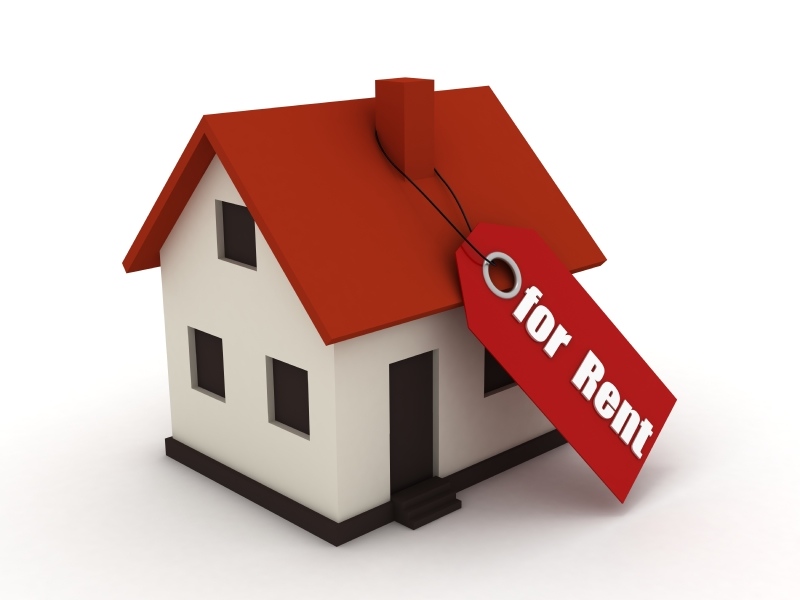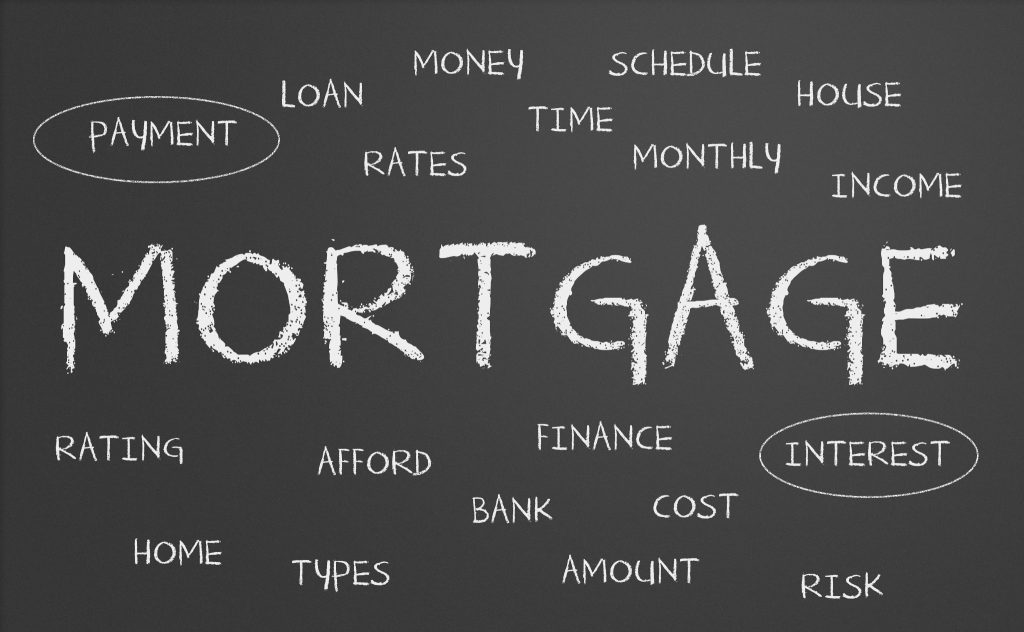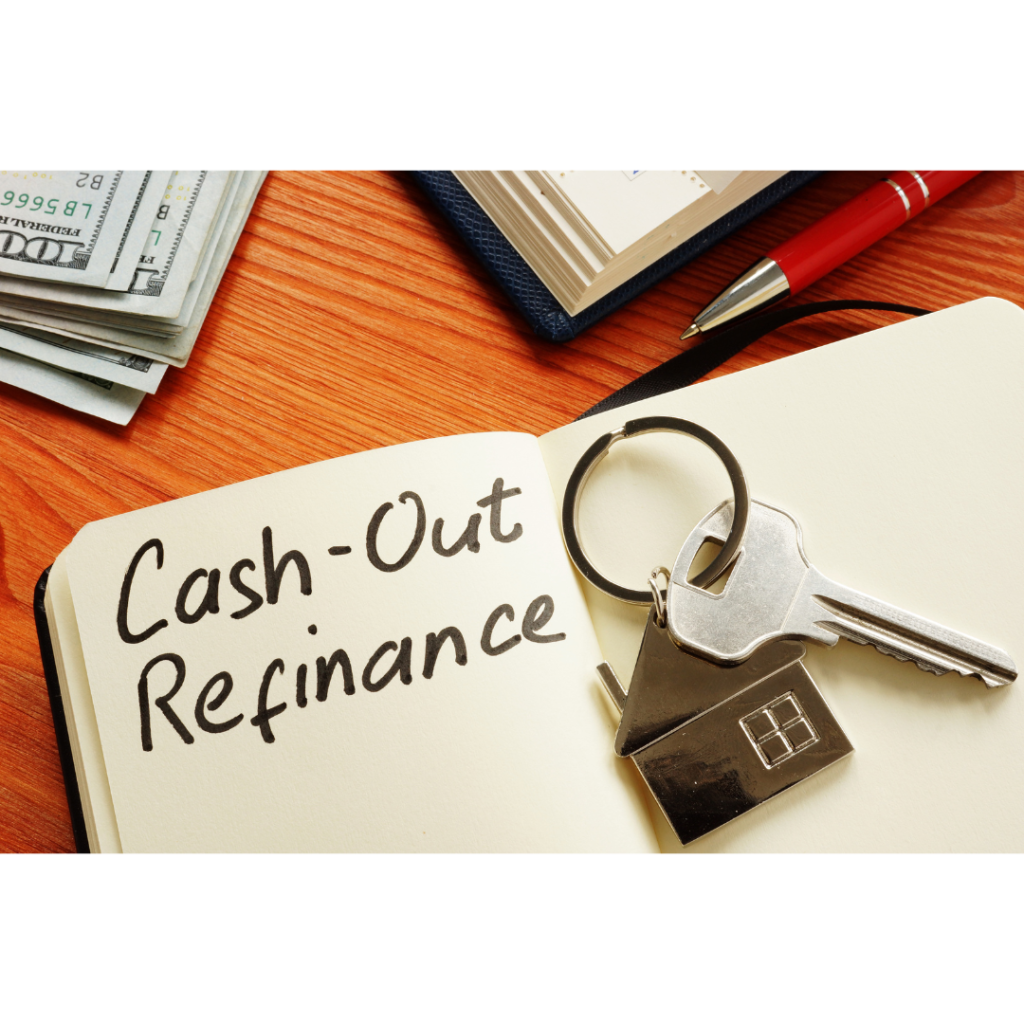Best Mortgage Rates for Investment Property
October 5, 2022Best way to get a Mortgage for Investment Properties over $2,000,000
October 6, 2022Real property is known to be a good investment because historically, its prices are on the up and up. When value appreciates, so does the profit of real estate investors.
With that in mind, real property investors should always be on the lookout for ways to expand their real estate portfolio. Cash-out refinancing is one way to do that.

What is Cash-out Refinancing?
Cash-out refinancing is the process of taking out another mortgage to “finance again” the property. With a refinancing, you can convert your home equity into cash, which can then be used for various things. Since we are talking about property investments, then that cash can be used as a down payment for another property, hence expanding your real estate portfolio.
When you apply for a new mortgage, it has to be larger than the balance of the previous mortgage. This way, you can pay off the last mortgage and get extra cash that you can use to invest.
For example: You have a $100,000 balance of a $150,000 home mortgage. So, to refinance, you take out another mortgage for $150,000. You then pay off your $100,000 balance and you are left with $50,000 cash.
Cash-out refinancing also has other benefits:
1. Debt Consolidation
Credit card debts are known to have higher interest rates compared to a mortgage. Other loans, particularly short-term ones, also have higher interest rates. A cash-out refinance can help you consolidate all your debts by paying them off when you receive the home equity cash. In the end, you’ll be left with the mortgage and you don’t have to worry about debts with higher interest rates.
2. Improve Credit Score
A credit score is crucial in loans. People with high credit scores are allowed bigger loans at lower interest rates. So, how can a refinance elevate your credit score? With your extra cash, you can pay off your high-interest credit card debt to reduce your credit utilization score, which is the ratio of your total credit to your total debt.
3. Improve Your Home
You can invest the refinance cash into your home. Think about renovation to add extra rooms or extra units to add rental space. Or you can simply improve the property and increase the rental fee.
4. Shorten Loan Term
Another advantage when taking out a new loan is the home equity cash can be put back into your current loan to make the principal loan lower, therefore reducing your loan term, which will also lower your monthly payment. You will pay off the loan in no time, which will free you up, and then you can take on another loan to expand your investment properties.
It’s worth noting that loans and mortgages look different on different people. Every person has different factors affecting their finances, thereby impacting their loans and mortgages. So, take time to study the situation and talk with a financial adviser or your lender for clarity.
When is the Right Time to do a Cash-out Refinance?
As with everything that has to do with money, timing is everything. It’s the same with cash-out refinancing- there is a right time for it.
The best time to do cash-out refinancing is when the housing market is hot.
Hot vs. Cold Housing Market
These are common phrases in real estate: Cold housing market or the hot housing market. Other times you will hear the phrases ‘buyer’s market’ and ‘seller’s market’.
When there are more homes for sale than available buyers, then you have a cold housing market or a buyer’s market. The latter refers to the situation where buyers have more homes to choose from- which is ideal because they don’t have to get involved in a stressful bidding war.
On the other hand, you have a hot real estate market when there are more buyers than available houses for sale. It’s also called the seller’s market because they can sell houses for more than the asking price without even haggling. The buyers themselves, through a bidding war, will be willing to pay more.
When there is a hot housing market, the mortgage rates go down and home values are on the rise. According to experts, the best time to refinance is when the current mortgage rate is 1% lower than when you originally took out a mortgage.

What to Know About Cash-out Refinance on Investment Properties
Now that you know the advantages of cash-out refinance and the appropriate time to get it, it’s time to check out the nuances of cash-out refinance on your investment property.
While the process of refinancing homes and investment or rental properties are the same, there are differences in terms of fees and interest rates. Since rental properties are used in business, they have higher interest rates and fees. Plus, they have lower loan-to-value ratios.
Why Investment Properties Have Higher Rates and Fees
Banks, financial institutions, and other lenders view investment properties as more risky than houses occupied by the owners. There is a possibility that investment property owners will be unable to pay the mortgage amortizations if the rental properties aren’t earning, whether from a lack of tenants or because the tenants failed to pay rent.
Borrowers tagged as risky will always have higher interest rates and fees, and it’s the same for investment property owners. That’s why credit scores are crucial because they could balance out the situation, leaving you with a lower interest rate, although still higher when compared to regular mortgages.
Loan-to-value Ratio
Speaking of risk, it’s also a talking point in the LTV ratio, which is a term that refers to the lender’s evaluation of your risk level. The ratio is presented in percentage form. The goal is to have a low LTV to be considered low risk.
The LTV ratio is garnered by dividing the mortgage amount by the appraised property value. Multiply the answer to 100 to get the percentage.
For example: Your mortgage amount is $100,000 but the appraised value of the property is $175,000. That will give you a quotient of 0.57143, which is presented as 57%.
A 57% LTV ratio is good because it’s low. The maximum LTV ratio that most lenders will tolerate is 75%. It’s why it is essential that you refinance the property during a hot housing market because the home values increase, hence the high appraisal value.
Those who have a high LTV ratio are usually required to buy mortgage insurance to offset the risk.
How to Cash-out Refinance Investment on Your Property
Now that you are armed with the essential information you need to know to do a cash-out refinance investment on your property, it’s time to do it. Here are the general steps:
1. Know Your Numbers
Knowing your basic numbers will give you an idea of what to expect when you apply for a cash-out refinance. What numbers are we talking about? The crucial numbers are your credit score, LTV ratio, and cash reserves. All lenders will want these numbers.
Financial institutions have different requirements but a credit score of 620 is generally the minimum for cash-out refinance. The higher the score, the better because it means you can possibly have a lower interest rate.
As earlier mentioned, the maximum LTV ratio to get a cash-out refinance for your rental property is 75%.
Lastly, lenders will ask about your finances. They usually prefer if you have cash that’s worth at least a year of mortgage payments, which is a comfortable cushion in case the rental property is not doing well financially.
2. Shop Around for Lenders
You should do your research about lenders that will give you a second mortgage. To obtain financing, you have to approach banks and credit unions. There are also consumer finance companies and loan organizations that specialize in mortgages. Finding the right lender, one who will give you the best terms, is crucial.
When you’ve done your research, you could get in touch with the three you consider the best among the pool so you could have an idea of what the cash-out refinance will look like for you. Talking with the lenders should make it easier for you to make a choice.
3. Prepare the Necessary Documents
The lender will provide you with a list of the documents you must submit to apply for the cash-out refinance. Generally, the requirements are the following:
- Proof of income
- Recent tax returns (W-2 or 1099 forms)
- Copy of rental property coverage
- Copy of title insurance
- Asset and debt information
Most of the necessary documents are proof that you are capable of paying off the monthly mortgage payments.
4. Apply for Cash-out Refinance
Since you already have the documents, you must submit them and wait for the lender to get back to you while they evaluate your paperwork.
5. Submit to Underwriting and Appraisal
Before the lender approves the refinance, you must submit to underwriting and appraisal. The process will give you a better picture of whether you should close the deal or not. In fact, according to the Truth in Lending Act, after signing you have three days to cancel the loan if you are not satisfied with the terms,
6. Lock Down the Interest Rate
The lender will ask you if you want to lock down the interest rate. Mortgage rates change at least daily and you have around 15 to 60 days to close the deal. When you lock in your interest rate, you can continue to review the loan details without fear that the interest rate may increase.
While it’s tempting to wait for the time when the interest rate will go down, you should also think about the possibility that it may go up. Besides, when you apply for the cash-out refinance, it is a given that you did so because the mortgage rates were low as it was a hot housing marketing season.
7. Close the Loan
The lender will provide you with a Closing Disclosure, which contains the terms and conditions of the cash-out refinance investment property loan. The documents will contain the amount, interest rates, fees, and closing costs. Review the paperwork judiciously.
If everything is correct, you can sign the document and get ready to receive your money.
8. Receive Cash
You will get your cash-out refinance money within one to three business days. Ask the lender in advance when the money is expected to be released.

What If You Don’t Qualify for a Cash-out Refinance?
Not everybody can pass the requirements set by most banks and credit unions. Some people may have a lower credit score or a high LTV ratio. It doesn’t mean that all loan hopes are lost.
For borrowers who can’t avail themselves of the cash-out refinancing from financial institutions, there is an alternative: A non-qualified mortgage (QM) loan. A non-QM loan is just like any loan but without stringent requirements. It provides more adaptable mortgage financing terms, which are ideal for people who may have defaulted mortgage payments previously.
In some cases, there are self-employed people who cannot avail themselves of a regular mortgage because they don’t have regular income to show for it. Again, the non-QM loan is the option.
The following are the individuals or entities who would have a hard time getting regular mortgage loans, much more a cash-out refinancing on investment properties:
Real Estate Investors
Investment properties are risky, which is why they have higher interest rates. Real estate investors may need to apply for cash-out refinance for multiple properties, which many institutions will not be open to. Legally, an investor can refinance five to 10 properties, but it’s rare for any institution to approve it. But they may qualify for a non-QM loan.
People Who Need a Large Loan Amount
Getting a QM loan for a large amount entails extremely high-interest rates and may need a very good (740-799) or excellent (800-850) credit score.
Self-Employed Individuals
Many self-employed people may not have acceptable qualifying tax returns based on most banks’ requirements.
Retirees
Retirees don’t have proof of income, which would make it difficult to qualify for a regular loan or mortgage.
People With Low Monthly Income
Some people with low salaries may have assets that would qualify them for non-QM loans.
Foreign Nationals
It would be hard for foreign nationals to submit tax returns, which are among the necessary requirements for a mortgage.
People With High Debt-to-income Ratio
People with large debts are too risky for most institutions to accommodate, especially if they don’t have the income to back them up.
Non-QM Requirements
For those who fall into any of the above-mentioned categories, the non-QM loan is the right option. There are several types of non-QM loans and having a job is not the only requirement. Non-QM loan lenders recognize that there are cases where a paycheck is not the only source of household income.
Non-QM loans also won’t require you to purchase private mortgage insurance despite a high LTV ratio or debt-to-income ratio. More importantly, for investors, investment properties are easily accepted in cash-out refinancing. Plus, multiple properties can be financed without any issues.
The Various Types of Non-QM Loans
There are several types of non-QM loans available today. Each type of loan also reflects its main requirements: For example, a bank statement non-QM loan implies that you only need a bank statement to qualify for the loan. The bank statement, of course, should reflect the ability to pay off the loan according to the agreed terms.
The great advantage here is that a bank statement non-QM loan is perfect if your tax returns don’t accurately or adequately reflect your income. Maybe you are a borrower who has made business expenses and taken deductions, which reflects on your tax returns.
With that illustration, here are the most common types of non-QM loans:
- Asset-based loan
- Bank statement loan
- Foreign national loan
- Individual tax identification number loan
- Interest-only mortgage
- Mortgage after a foreclosure
- Mortgage under an LLC
- Mortgage without tax return
- No-income investment loan
- Recent credit event loan

Where Can You Apply for a Non-QM Loan?
There are several non-QM lenders out there, offering a lifeline to people who thought they could never get a loan. This type of loan is especially helpful to those who want to expand their real estate portfolio, and to do that, they need to buy properties through cash-out refinance.
To get a cash-out refinance for your investment property despite failing to qualify for the minimum requirements set by banks and credit unions, you can get in touch with Aurum and Sharpe. The organization is an expert in non-conventional mortgages, which is essential when you have investment properties.
Aurum and Sharpe will provide a tailored loan solution to your problem, which means you get terms that are just right for your situation. Every investor has a different circumstance layered with various factors, and these merit a well-crafted loan solution that suits their financial state; Aurum and Sharpe understand that inherently.
Mortgage Rates
Mixed Use: 7.685
Office: 7.685
Retail: 7.685
2-4 Units: 7.685
Multi-Family: 7.685
Portfolio of 2-4 family homes: 7.685
single family: 7.685
portfolio of single family homes: 7.685
Calculate Your Monthly Payment
Mortgage Information
Monthly Payment
Principal and Interest: $0
Total Monthly Payment: $0
